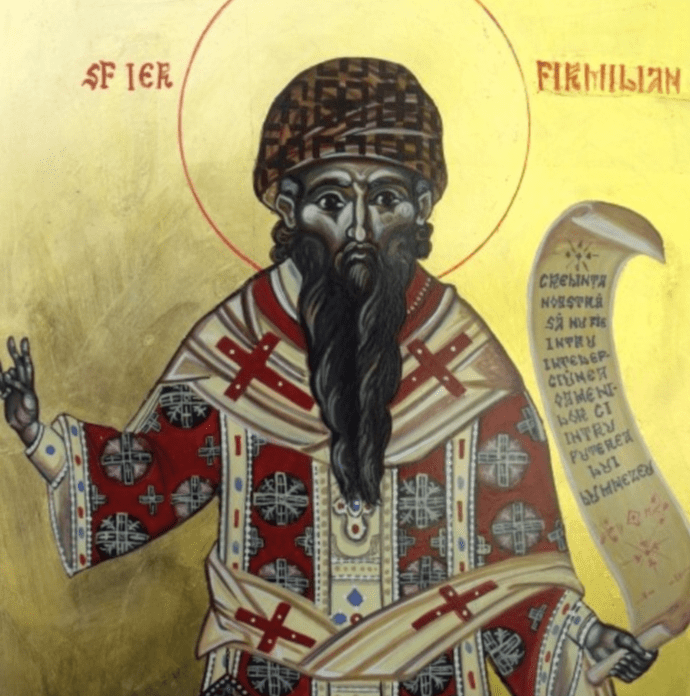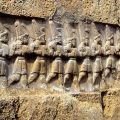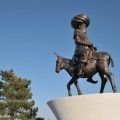Firmilian was a 3rd-century Christian bishop and theologian who lived in Cappadocia, a region in central Turkey. He was born in the late 2nd century in the city of Caesarea and studied under the famous Christian teacher Origen in Alexandria, Egypt.
In 232, Firmilian was elected bishop of Caesarea and became known as a leader of the Church in Asia Minor. He was known for his strict adherence to Christian doctrine and his opposition to the Roman bishop Stephen’s claim to supremacy over other bishops. In particular, Firmilian disagreed with Stephen’s view that baptism performed by heretical or schismatic groups was invalid. Firmilian argued that baptism performed in the name of the Trinity was valid, regardless of who performed it.
Firmilian was also involved in a controversy over the treatment of Christians who had lapsed during the persecution of Emperor Decius in 250. Some bishops argued that lapsed Christians should not be readmitted to the Church, while Firmilian advocated for their forgiveness and readmission. This controversy ultimately led to the Novatian schism, in which a group of Christians broke away from the Church and formed their own sect.
Firmilian was an accomplished writer and theologian, and several of his works have survived to this day. He wrote extensively on baptism, the relationship between bishops and the Church, and the role of the Holy Spirit in Christian life. He was also known for his defense of the orthodox view of the Trinity against the heresy of modalism, which taught that God was one person who revealed himself in different modes or forms.
Despite his prominence in the early Church, Firmilian’s influence waned in later centuries. He is not considered a saint in the Eastern Orthodox Church, and his writings were not widely read or studied during the Middle Ages. However, he remains an important figure in the history of early Christianity and his contributions to theology and Church practice continue to be studied and debated by scholars today.
If you’re interested in learning more about Firmilian, there are many resources available, including his own writings as well as books and articles by modern scholars. You can also visit sites associated with his life and work in Cappadocia, including the city of Caesarea, which has many ancient Christian ruins and landmarks.




